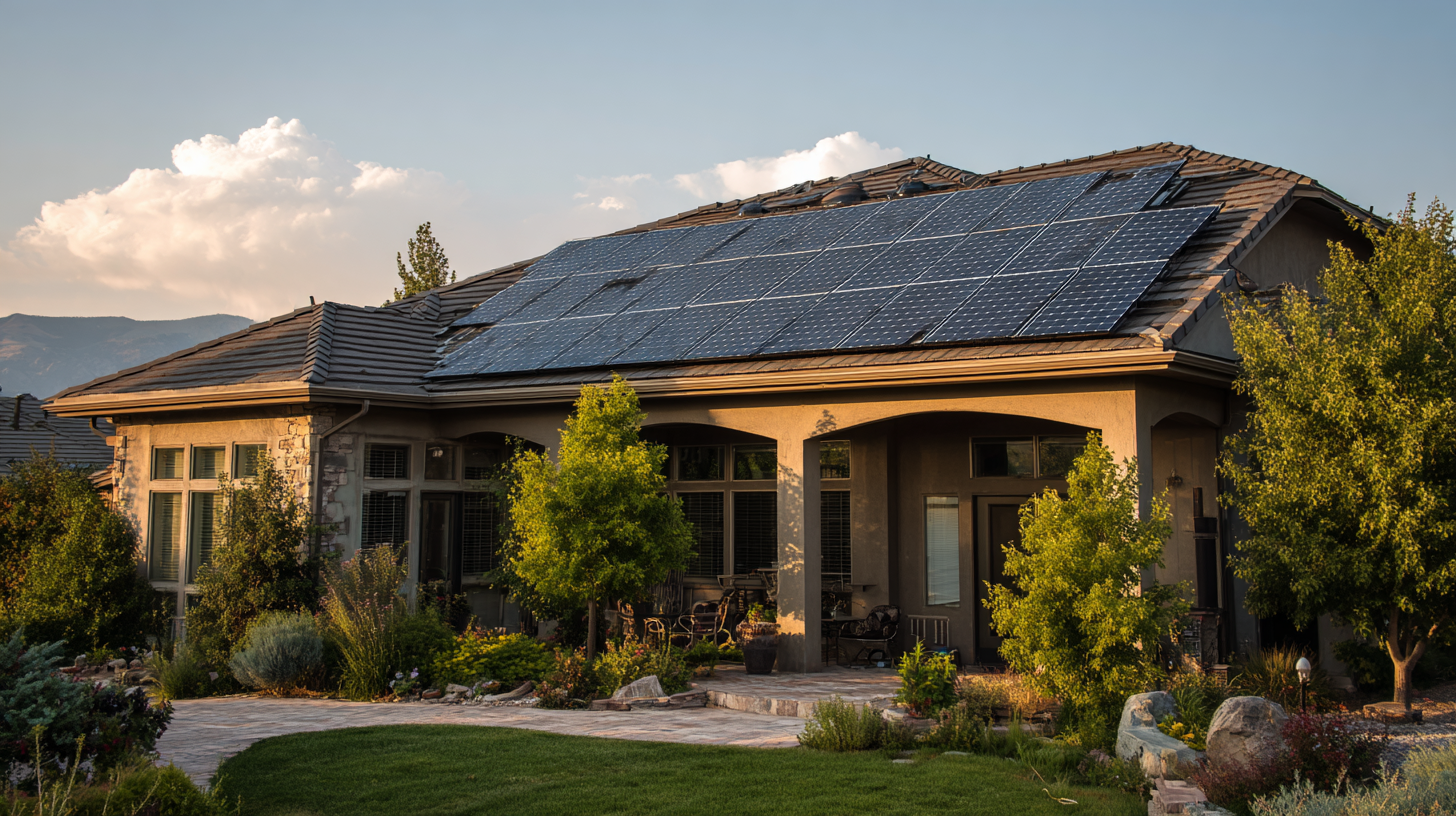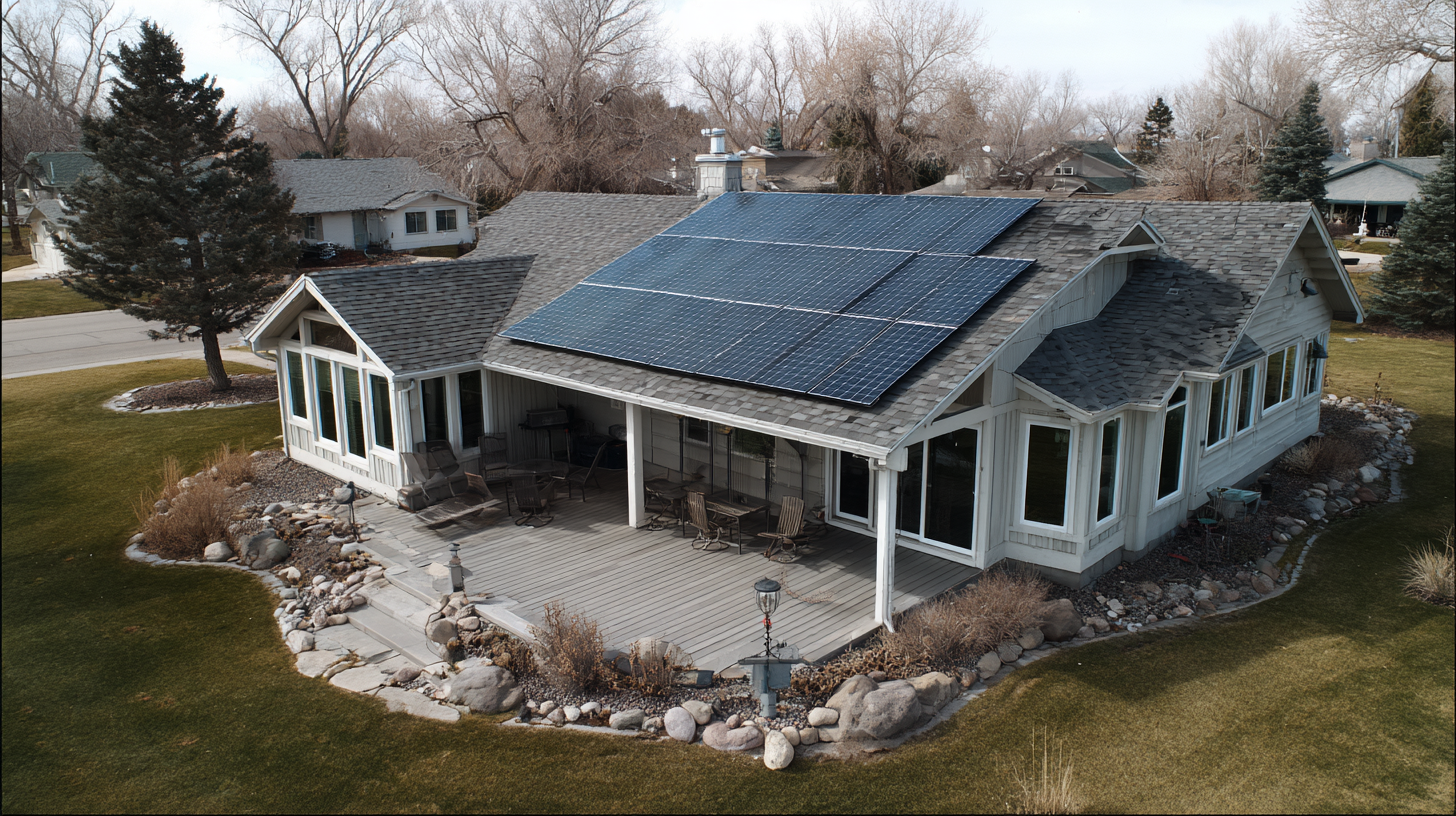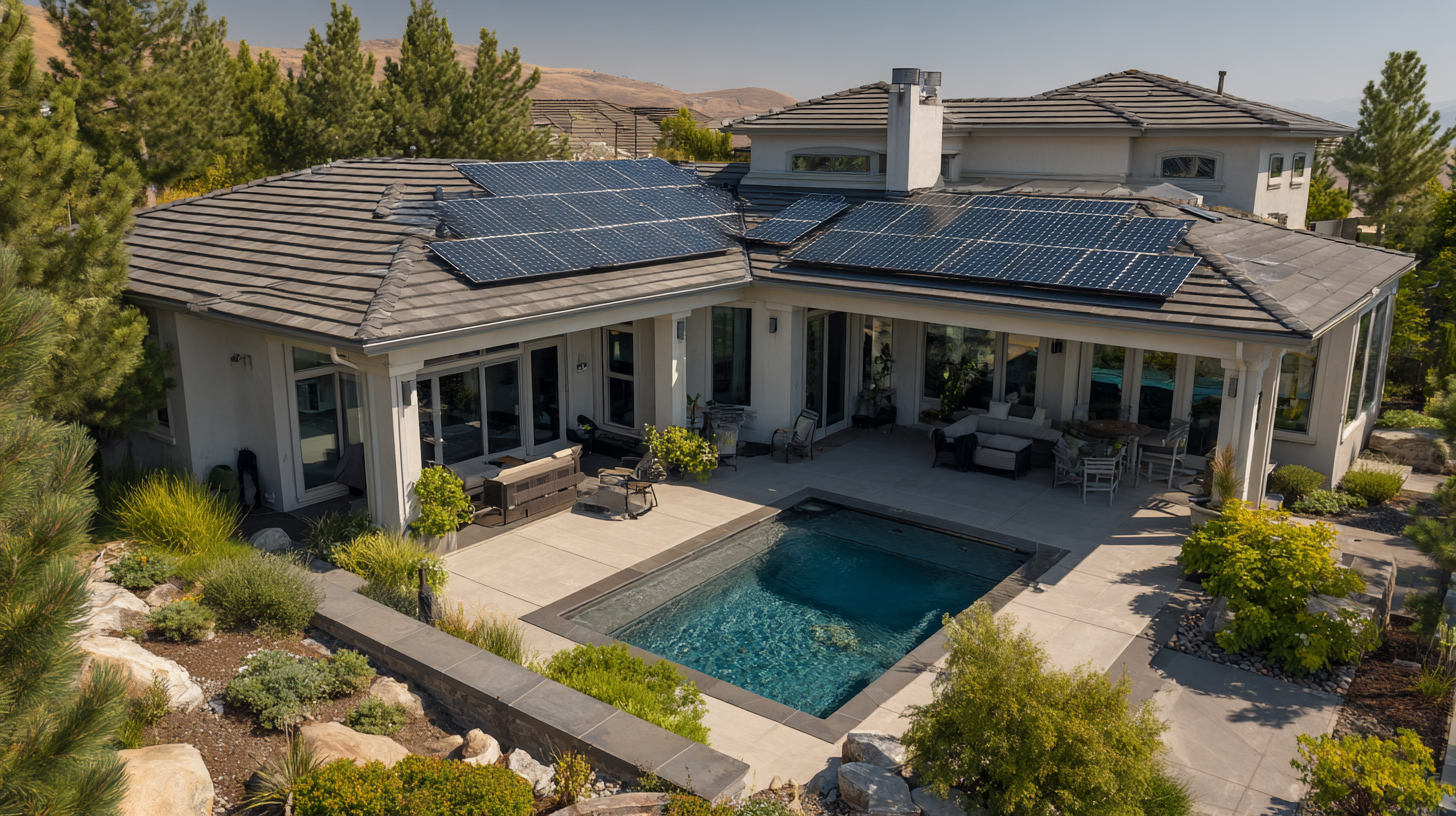Transform Your Living Space: How Home Solar Panels Can Boost Property Value and Lower Bills
In today's world, where sustainability and energy efficiency are paramount, transforming your living space with home solar panels has become an increasingly attractive option for homeowners. Not only do these innovative systems contribute to a greener planet by harnessing renewable energy, but they also offer significant financial advantages that can enhance the overall value of your property. Investing in home solar panels can lead to substantial savings on your energy bills, allowing you to allocate your resources more effectively. Additionally, properties equipped with solar technology often appeal to a growing market of environmentally conscious buyers, potentially boosting resale value. In this guide, we will explore the various benefits of home solar panels, from reducing monthly expenses to elevating real estate value, helping you make an informed decision about this transformative addition to your living space.

Understanding the Impact of Solar Panels on Property Value
The adoption of solar panels in residential areas not only aligns with environmental sustainability but also significantly enhances property value. Homeowners can capitalize on the growing demand for renewable energy by investing in solar systems. The U.S. Solar Energy Industry Association reports that homes equipped with solar panels sell for an average of 4.1% more than comparable homes without solar. Additionally, this value boost is most notable in sunny regions where electricity costs are traditionally higher, driving potential buyers to seek energy-efficient solutions.

Tips for homeowners considering solar installation include researching local solar incentives and rebates that can lower initial costs. It's also advisable to obtain quotes from multiple installers to ensure competitive pricing and to verify their credentials to avoid any potential quality issues. Regular maintenance of solar panels can help maximize efficiency and longevity, contributing to sustained property value over time. By staying informed about solar market trends, homeowners can make strategic decisions that not only reduce utility bills but also enhance their property investment.
Key Financial Benefits of Installing Solar Energy Systems
Installing solar energy systems in your home offers significant financial benefits that go beyond environmental advantages. One of the primary incentives is the drastic reduction in monthly energy bills. With solar panels harnessing the sun’s energy, homeowners can generate their own electricity, leading to substantial savings over time. In many cases, these savings can offset the initial installation costs within just a few years, providing a strong return on investment.
Furthermore, solar panels can enhance property value. Real estate studies indicate that homes equipped with solar energy systems often sell at a premium compared to similar homes without them. Potential buyers are increasingly attracted to the prospect of lower utility expenses and energy independence. This trend not only allows sellers to recoup their upfront installation expenses but also positions their properties favorably in a competitive market. Investing in solar energy thus proves to be a smart financial decision for homeowners looking to enhance the overall value of their property while simultaneously lowering their ongoing energy costs.

Tips for Maximizing Energy Savings with Home Solar Installations
Installing home solar panels is a strategic investment that not only enhances your living space but can significantly reduce energy costs. To maximize savings, homeowners should first assess their energy consumption patterns. Conducting a thorough evaluation can help identify the best times for solar energy utilization, particularly during peak sun hours when solar production is at its highest. This approach enables homeowners to align their energy usage with solar generation, thereby reducing reliance on traditional grid electricity.
Another effective strategy is to adopt energy-efficient appliances and smart home technology. By investing in energy-efficient devices, residents can lower their overall electricity consumption, allowing the solar system to cover a greater percentage of their energy needs. Additionally, integrating smart thermostats and energy management systems can optimize energy usage in real-time, ensuring that households are utilizing maximum solar power while minimizing expenses. By taking these steps, homeowners can create a sustainable energy ecosystem that enhances both the value of their property and their financial well-being.
Impact of Home Solar Panels on Property Value and Monthly Savings
Choosing the Right Solar Panel System for Your Home
When considering a solar panel system for your home, selecting the right type can significantly influence both your energy savings and property value. According to the Solar Energy Industries Association (SEIA), the installation of solar panels can increase a homeowner's property value by an average of $15,000. This is due to the ability of solar panels to reduce monthly electricity bills, with homeowners saving around $1,500 annually on energy costs, depending on local utility rates and solar system size.
Homeowners should evaluate their options carefully, focusing on factors like efficiency ratings, warranty lengths, and types of solar panels available. Monocrystalline panels, for example, are known for their high efficiency and space-saving designs, making them a popular choice for homeowners with limited roof space. The National Renewable Energy Laboratory (NREL) reports that these panels can convert over 20% of sunlight into electricity, which can lead to more substantial energy savings over time. Understanding both the financial incentives and technical specifications of solar panels will help homeowners make an informed decision that meets their energy needs while enhancing their property's value.
Government Incentives and Tax Benefits for Solar Panel Adoption
The rise of home solar panels not only promises reduced electricity bills but also substantial government incentives that make the transition to renewable energy even more appealing. Many countries and regions offer tax credits, rebates, and grants to encourage homeowners to install solar panels. These incentives can significantly offset the initial costs, making solar energy an economically feasible option for many. Homeowners can take advantage of federal tax credits that allow them to deduct a portion of their solar installation costs from their federal taxes, and some states provide additional incentives to sweeten the deal.
Tips: Before you start the installation process, research the specific incentives available in your area. Websites that track solar incentives can be incredibly useful. Additionally, consider consulting with a local solar installation expert who can guide you through the paperwork required to claim these benefits efficiently.
Moreover, adopting solar energy can lead to increased property value. Homes equipped with solar panels are often seen as more desirable because they offer potential buyers savings on energy costs and a reduced carbon footprint. When planning your solar panel installation, make sure to verify that your systems are officially certified and compliant with local regulations to fully benefit from the incentives available.
Related Posts
-

Unlocking Home Solar Potential: How 50% Tax Incentives Are Transforming Energy Savings in 2024
-

Home Solar Panels: Common Challenges and Solutions for a Sustainable Future
-

Harnessing 2025 Trends in Solar Technology to Choose the Best Solar Panels for Your Energy Needs
-

7 Best Solar Systems Innovations Transforming Global Energy Markets
-

Unlocking China's Solar Potential at the 138th Canton Fair 2025 Insights and Industry Data
-

The Ultimate Guide to Choosing the Right Solar Systems for Your Home Energy Needs
